This 40-Year Study Reveals How US Presidential Elections May Impact 5 Key Markets
2024.07.18 04:48
Love it or hate it, the 2024 US Presidential Election will only continue to get more media coverage from here. In an effort to head off the inevitable efforts to tie election results to market performance, we’ve analyzed the last 10 US Presidential elections, 40 years’ worth of data, and the price action of five key markets: , , , the , and .
Of course, every election brings its own unique circumstances and stakes, so the data and figures in this guide should not be taken as gospel for what will happen in the 2024 election. As you may have heard before, past market performance is not necessarily indicative of future outcomes.
Likewise, your approach to trading around elections may be different than another trader who reads this article. For example, you may see politics as a potential edge to exploit in your trading whereas another trader may sit them out entirely, opting to remain to the sidelines until the future outlook is less cloudy.
Regardless of your preferred approach, a thorough, historically informed perspective of the potential impact of US elections on markets will help you better prepare for and plan around situations when the political stakes are high.
1. How Could the Election Outcome Impact EUR/USD?
At a high level, the has not shown a consistent trend of strengthening or weakening in one month before, one week after, one month after, or one quarter after US Presidential Election days over the last 10 elections.
As the chart below shows, the greenback has strengthened in the run-up to the election against the euro in each of the last four elections, but it had fallen (EUR/USD up) in four of the previous six. Likewise, EUR/USD had shown a tendency to fall in the quarter after a US Presidential election in the 1980s and ‘90s, but that “trend” has grown more neutral in recent decades:
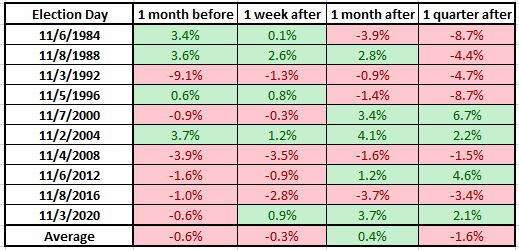
Source: TradingView, StoneX. Past performance is not indicative of future results.
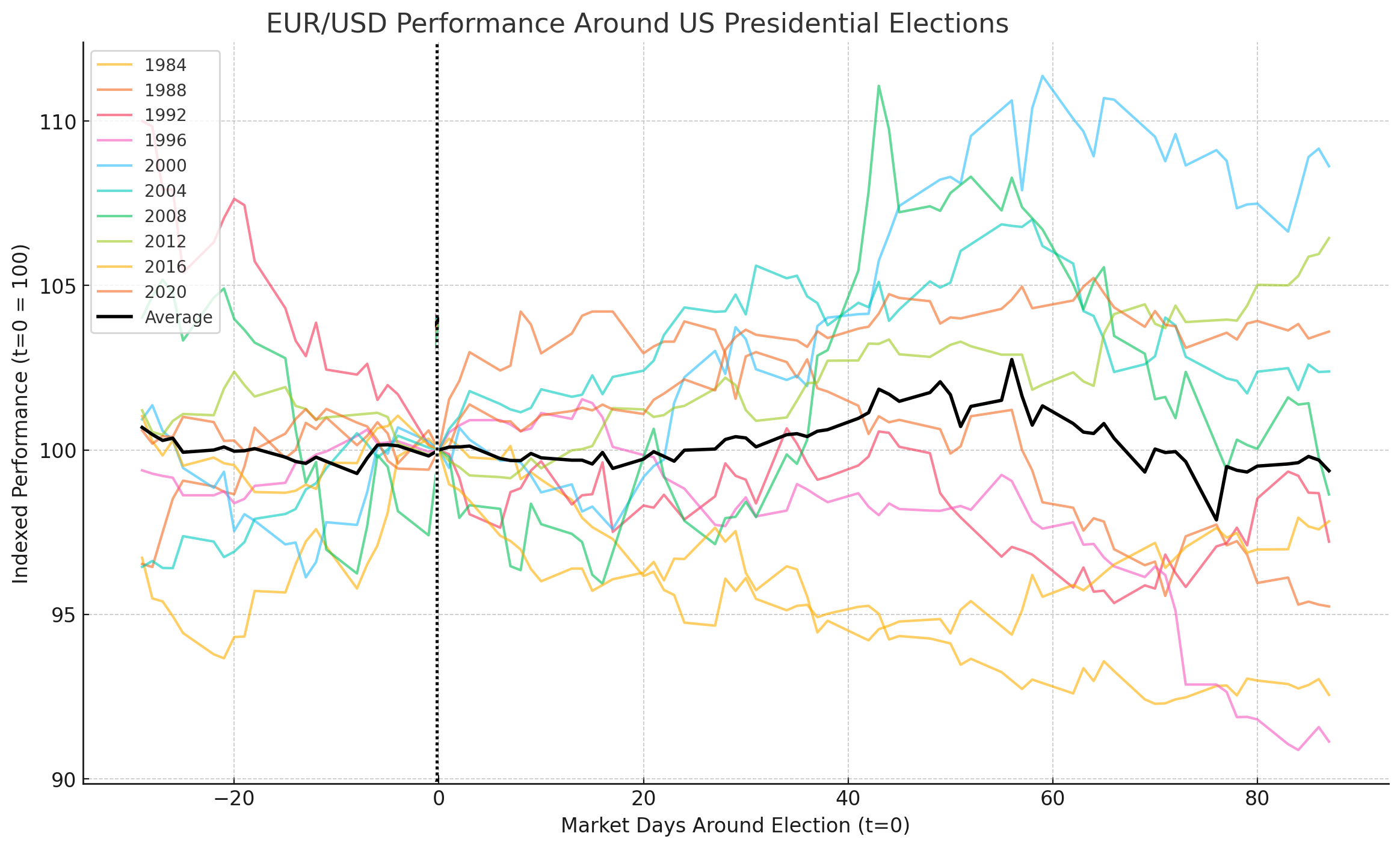
Source: TradingView, StoneX. Past performance is not indicative of future results.
2. GBP/USD’s Reaction
GBP/USD showed a similar trend of US dollar strength (GBP/USD lower) in the quarter after an election in the 1980s and ‘90s, but that greenback has seen its post-election performance normalize since 2000: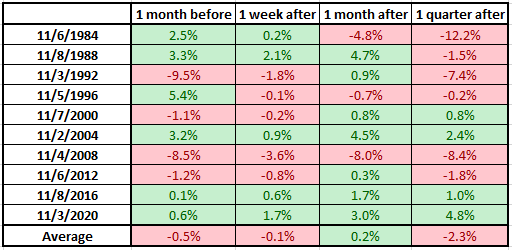
Source: TradingView, StoneX. Past performance is not indicative of future results.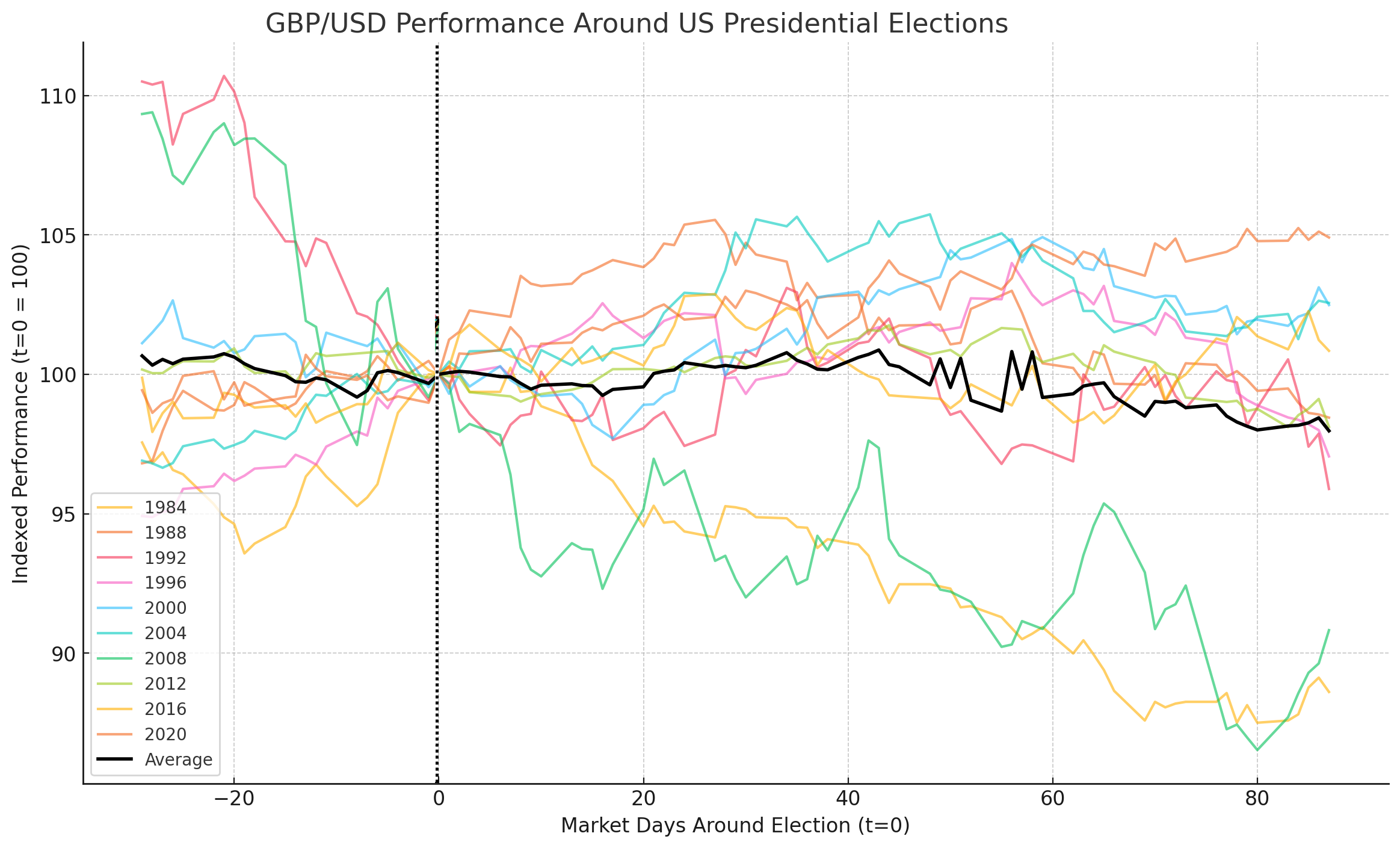
Source: TradingView, StoneX. Past performance is not indicative of future results.
3. USD/JPY: Mixed Reaction Remains in the Offing
As for USD/JPY, the clearest “trend” around elections has been persistent strength in the quarter after the US Presidential elections. However, it is worth noting that USD/JPY has generally appreciated over the last four decades, so it’s difficult to parse whether such moves are related to the election or the broader macroeconomic trends of the last four decades.
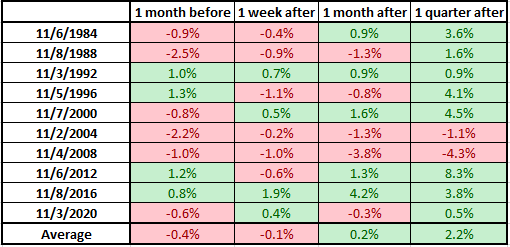
Source: TradingView, StoneX. Past performance is not indicative of future results.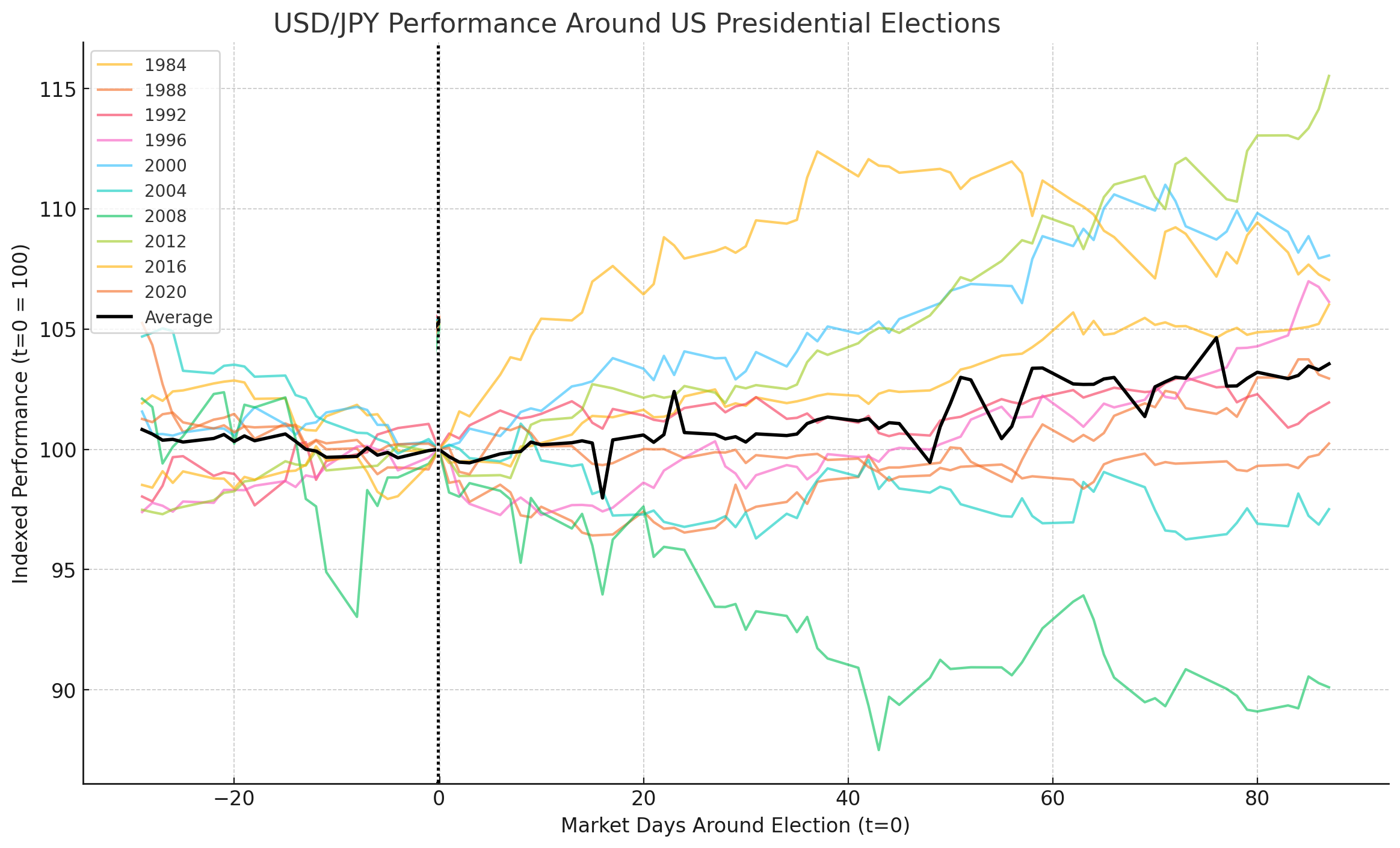
Source: TradingView, StoneX. Past performance is not indicative of future results.
4. Gold Analysis: How Have US Presidential Elections Impacted the Gold Market?
Turning our attention to gold, we can see that the yellow metal has generally weakened both before and after US Presidential elections, albeit with notable exceptions. To my eye, the most interesting tidbit from the table below is that, barring the onset of the Great Financial Crisis in 2008, Gold has fallen in the 3 months after a US Presidential Election eight out of nine times, with the only positive return coming in at a paltry +0.2% gain in 2004/2005: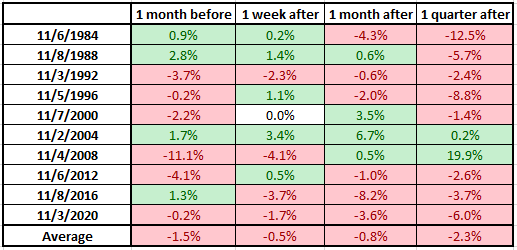
Source: TradingView, StoneX. Past performance is not indicative of future results.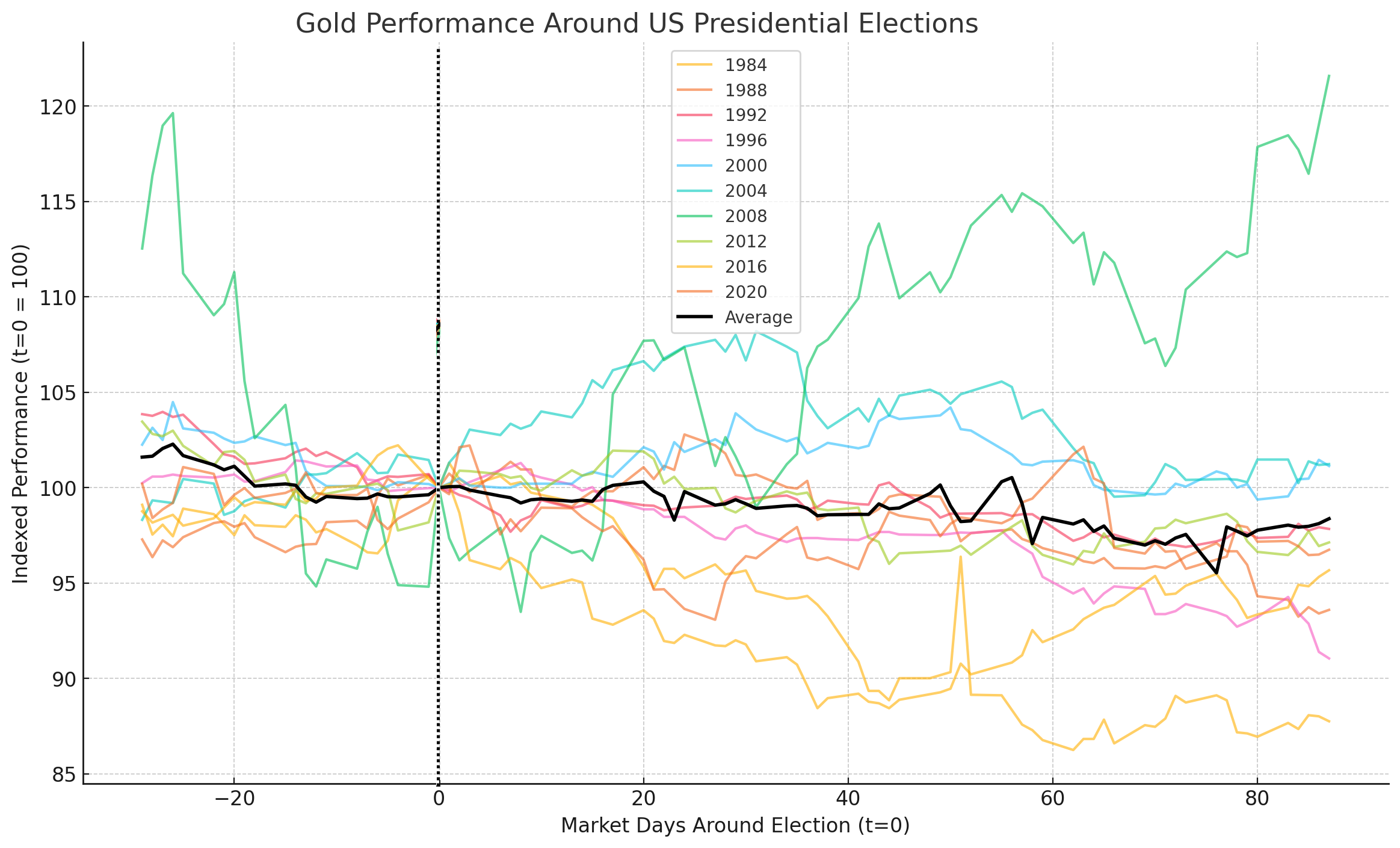
Source: TradingView, StoneX. Past performance is not indicative of future results.
5. S&P 500 Analysis: How Have US Presidential Elections Impacted the US Stock Market?
Last but not least, US indices are the market that would most logically see a stronger reaction to US Presidential elections. In each of the last five Presidential Elections, the S&P 500 has fallen in the month leading up to the election. Additionally, the S&P 500 has gained ground in quarter following an election eight of the last ten times (though of course, the US stock market has generally strengthened over longer time periods):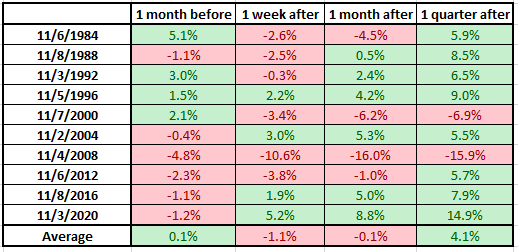
Source: TradingView, StoneX. Past performance is not indicative of future results.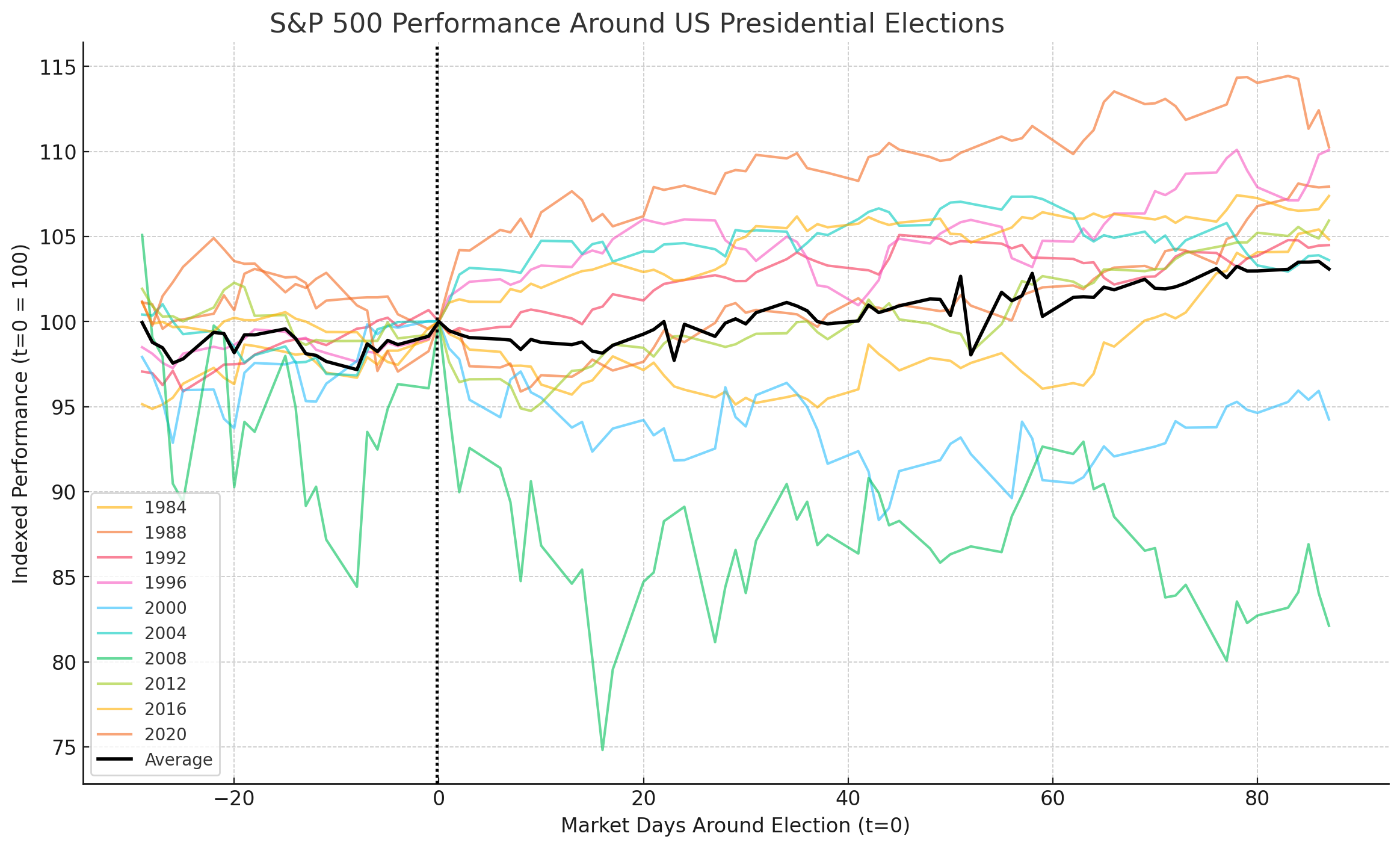
Source: TradingView, StoneX. Past performance is not indicative of future results.
Ultimately, the politicians and parties occupying the White House and Congress are just one of the many variables that drive the stock market, the US dollar, and gold. Though the historical returns highlighted above cover four decades of price action, it’s important to remember that absolute number of presidencies included (10) is still relatively small and markets are constantly evolving.
For some readers, the uncertainty leading up to a close election can provide compelling trading opportunities, but the direct impact of elections on markets is often exaggerated, especially by those with strong political views.
At the end of the day, the most important takeaway is to focus on developing a sustainable trading strategy that works regardless of which way the political winds are blowing at the moment.
Original Post








